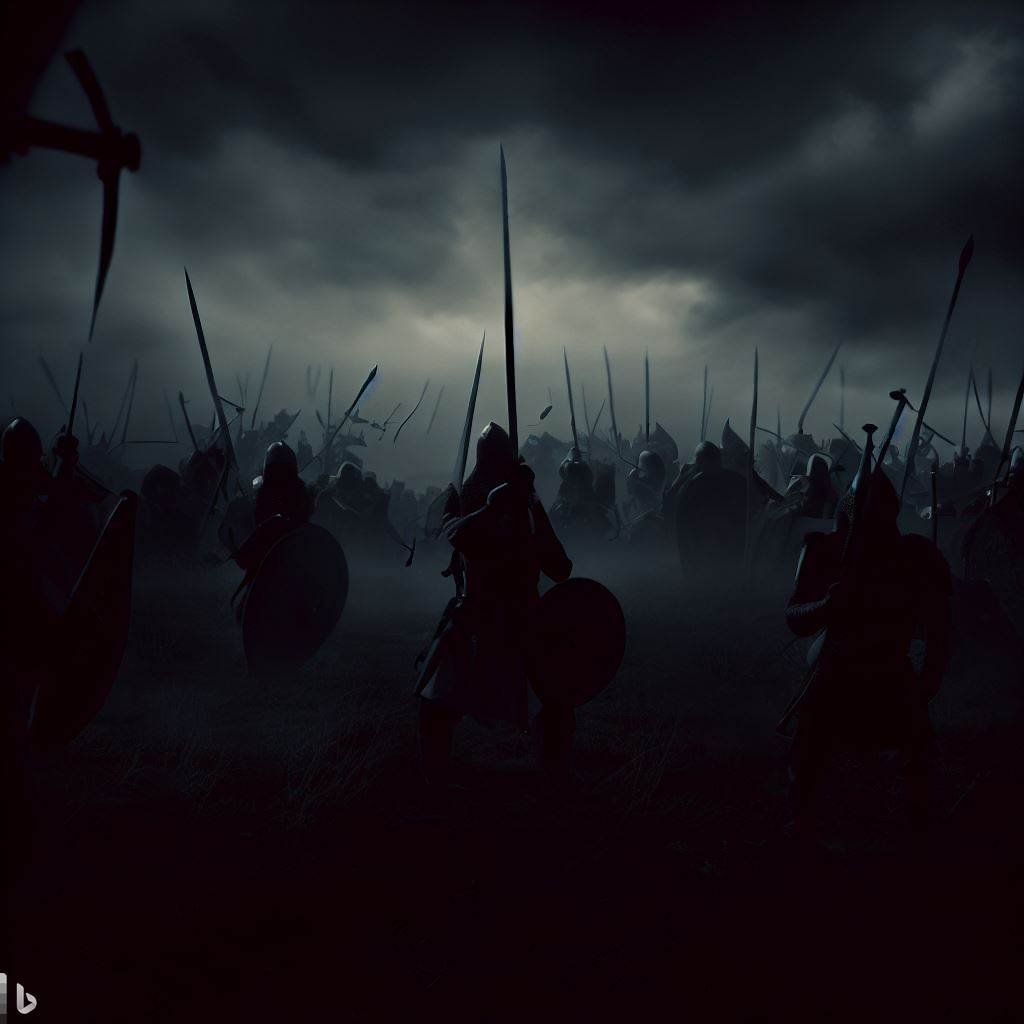
THE BATTLE OF SLUYS
Arrows Over Crimson Waves: An Archer's Tale at Sluys
The Battle of Sluys: A Tale of an English Archer
**A fictional account of an archer during the Battle of Sluys**
The salt-laden wind ruffled my hair as I stood aboard the Cog Thomas, my trusty yew bow in hand. My name is Alaric of York, an archer in King Edward III's navy. It was 24 June, and the sight before me was chilling. The French armada lay before us, their ships chained together in a daunting formation. King Edward's voice echoed with fiery determination, promising victory even as the enemy outnumbered us.
I'd heard stories of the relentless French raids, of the havoc they'd wreaked upon our towns. But nothing prepared me for the tension of that moment. Time seemed to stretch endlessly as we waited, the sun blazing overhead. The delay was strategic; King Edward was waiting for the opportune moment when the sun would be behind us, its glare blinding our foes.
Alaric of York, an archer in King Edward III's navy
As the sun neared the horizon, we made our move. The ships of our left flank charged forward, their timbers groaning as they smashed into the French front line. We unleashed a hailstorm of arrows, the air thick with their whistles. The advantage of our high vantage points was clear: every arrow found its mark, piercing through French armour and flesh.
The French responded with crossbow bolts, but their slower pace and the glaring sun rendered them ineffective. The sight was gruesome: Frenchmen, struck down by arrows or overwhelmed by our soldiers, flung themselves into the water. The sea churned with blood and bodies, a grim testament to the battle's ferocity.
It was then I heard the shouts from a nearby French ship. Hugues Quiéret, their admiral, wounded and bleeding, tried to surrender, only to meet a swift end. His head was paraded like a war trophy, a chilling reminder of the battle's brutality. As darkness cloaked us, we kept pressing on, the scent of burning timber and blood filling the air.
I watched as Nicolas Béhuchet, another of their commanders, was captured. In the dim light, I could see the fear in his eyes. But King Edward showed no mercy; Béhuchet was hanged from the mast, his body silhouetted against the night sky.
The clash of steel, the desperate cries of wounded men, and the roar of cannons persisted throughout the night. But as dawn broke, the horrifying scale of our victory became apparent. The French fleet lay decimated. Only a handful of their ships remained intact.
The sea, once a serene blue, was now stained crimson, littered with the remnants of broken ships and lifeless bodies. Our own losses were minimal in comparison, a mere fraction of the French casualties.
The victory at Sluys was decisive, but the war was far from over. We returned home as heroes, our triumphs sung in every tavern and square. But I knew the cost of this battle. Every time I closed my eyes, I saw the faces of the fallen, heard their cries of anguish.
In the days that followed, King Edward's forces landed on French soil, ready to continue the fight. As for me, my yew bow remained by my side, a constant companion through every skirmish and siege. But the memories of Sluys, of that blood-soaked sea, would stay with me forever.
Altnerative Reads
Source Texts

